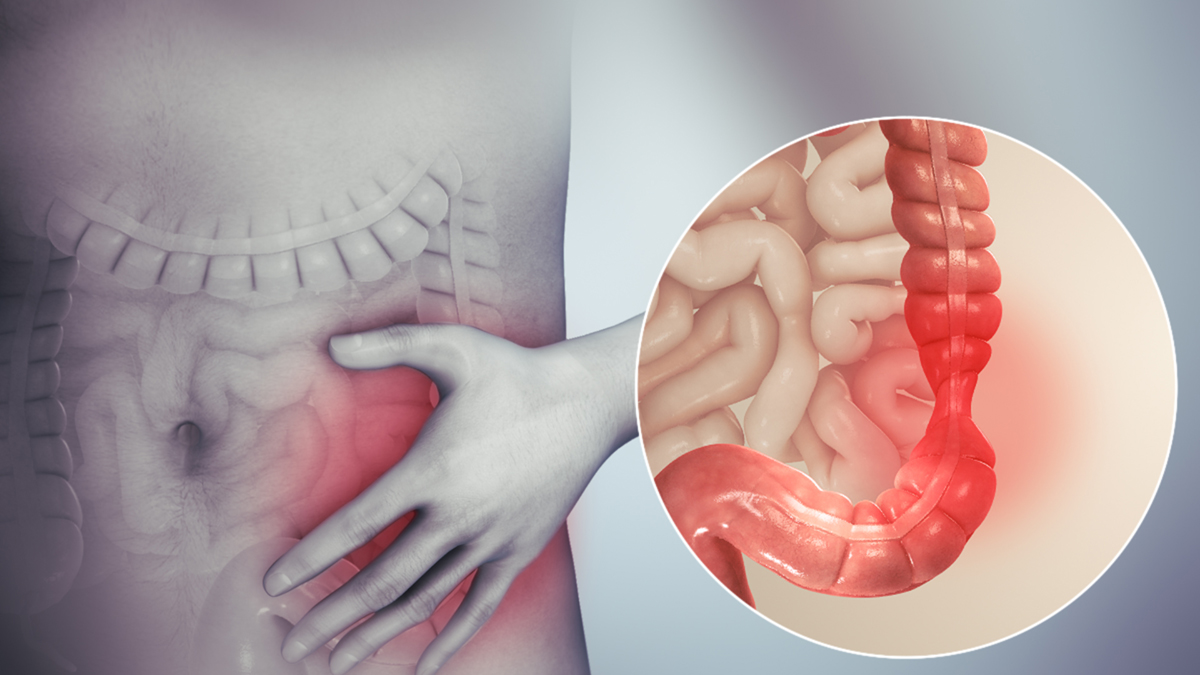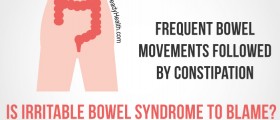
Irritable bowel syndrome (IBS) is a bowel disorder that commonly causes cramps, abdominal pain, bloating, gas, and change in bowel habits. Some people have constipation, some diarrhea and in some these two can alternate. Irritable bowel syndrome doesn’t cause permanent damage to the colon but causes discomfort. This disorder is common and affects 20% of adult Americans though women are more affected than men. IBS usually begins around the age of 20.
Symptoms of Irritable Bowel SyndromeSymptoms of IBS can vary from person to person as well as severity of symptoms. Sometimes symptoms can improve for certain period of time while sometimes they can worsen. In some cases, symptoms can be disabling. As already mentioned, common symptoms are abdominal pain, bloating and gas. Constipation and diarrhea are also common with IBS as well as mucus in the stool.
Causes of IBSThe cause for IBS is still not clear. Some researchers believe that the cause may lie in sensitivity of the colon to some foods. Also, it is believed that IBS may occur due to reaction to stress. The immune system is considered to be possible cause as well. Sometimes gastroenteritis can trigger irritable bowel syndrome. Hormonal changes may also play a role in developing IBS because this condition is twice as common in women as in men and because the symptoms are often worsen during menstrual periods.
Diagnosis
Diagnosis of irritable bowel syndrome depends on a complete medical history and a physical exam. Also, a doctor will inquire about patient’s symptoms. Diagnostic tests are performed to rule out other medical conditions and these tests include stool studies, blood tests and X-ray. A doctor may also perform flexible sigmoidoscopy or colonoscopy to examine the colon.
Treatment for Irritable Bowel SyndromeIrritable bowel syndrome is incurable but the treatment aims to relieve the symptoms. IBS can be managed with proper diet and avoiding foods that worsen the symptoms, and handling the stress. Your doctor may suggest medications for treating symptoms of irritable bowel syndrome. Fiber supplements and laxatives are good treatment for constipation while Lomotil or Loperamide (Imodium) can help with diarrhea. For abdominal pain and colon muscle spasms a doctor may prescribe antispasmodics. Some symptoms can be treated with antidepressants. Since both antispasmodics and antidepressants may contribute constipation, Dopamine and Librax can be given to relax muscles in the bladder and intestines. The only medication designed for treating irritable bowel syndrome is alosteron hydrochloride (Lotronex) but it must be used very cautiously because it has severe adverse effects such as reduced blood flow to the colon and severe constipation.




_f_280x120.jpg)












Your thoughts on this
Loading...